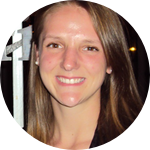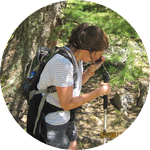Please wait...
About This Project
Science professors generally don't have the time or expertise to teach cross-cutting skills like communication. So, students graduate equipped with scientific knowledge but not the communication skills they need to benefit from that knowledge.
I hypothesize that we can train students to be significantly better communicators by incorporating short communication lessons into their science classes. The intervention will be assessed by blind reviews of student writing.
More Lab Notes From This Project

Browse Other Projects on Experiment
Related Projects
Unveiling Desires: Exploring BIPOC BDSM Preferences
"Unveiling Desires'' explores BIPOC fetishistic desires using a unique dataset from voluntary fetish surveys...
Can we empower science students with communication skills by eliminating the barriers of time and expertise?
Science professors generally don't have the time or expertise to teach cross-cutting skills like communication...
Can zoos bring us together?
Have zoos inspired their 180 million annual visitors to get involved and make choices everyday to conserve...




